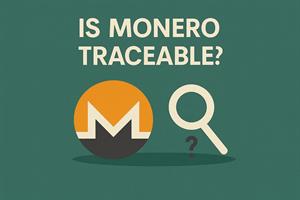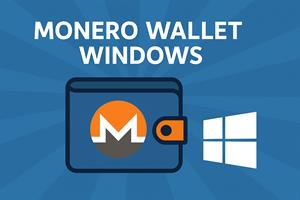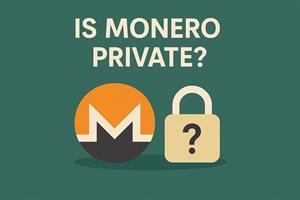Is Monero Traceable? (2025 Guide)
-
Blog
›
-
Is Monero Traceable?
Last updated: September 4th, 2025

Short Answer
- On-chain: Monero is designed to make transactions significantly harder to trace by hiding the sender, receiver, and amount with ring signatures (ring size 16), stealth addresses, and RingCT.
- Big caveat: Tracing can still happen at the edges—for example via KYC exchanges, poor operational security, or network-layer leaks. Monero’s privacy is strong by default, but not absolute.
What “Traceable” Means (On-Chain vs. Off-Chain)
- On-chain analysis: Attempts to link inputs→outputs on the blockchain. Monero counters this with ring signatures and stealth addresses and with RingCT hiding amounts.
- Off-chain correlation: Exchanges, merchants, emails, IPs, and device fingerprints can connect identities to transactions—regardless of on-chain privacy.
How Monero Resists Tracing On-Chain
- Ring signatures (default ring size 16): Your spend is obscured among decoys, creating plausible deniability (tech specs; 2022 upgrade set 16; Moneropedia).
- Stealth addresses: Each payment uses a unique one-time destination so recipients aren’t linkable (overview).
- RingCT (hidden amounts): Amounts have been mandatory hidden since 2017, blocking amount-matching heuristics (RingCT basics).
- Ongoing research & improvements: Monero periodically upgrades decoy selection and related mechanisms (e.g., OSPEAD research).
Where Traceability Can Still Creep In
- KYC on/off-ramps: Exchanges know your identity; deposits/withdrawals can be tied to you, even if on-chain links are obfuscated (FAQ).
- Legacy features: Long payment IDs were deprecated/removed because they harmed privacy—prefer subaddresses (deprecation; Moneropedia; subaddress docs).
- Network-layer leaks: Your IP and timing can be observed if you don’t route through Tor/I2P or if you rely on untrusted remote nodes (Tor/I2P for nodes).
- Endpoint/OPSEC mistakes: Emails, invoices, reused identifiers, device fingerprints, or malware can deanonymize you (general best-practice guidance in Zero-to-Monero).
Best Practices to Stay Less Traceable
- Use subaddresses: Give each counterparty a fresh subaddress to reduce correlation (how subaddresses work).
- Route over Tor/I2P: Connect your wallet/node via Tor or I2P to limit IP/meta leaks (guide).
- Run your own node: Reduce third-party metadata collection (monerod docs).
- Keep software current: Upgrades harden privacy over time (e.g., 2022 ring-size increase).
- Avoid KYC linkages: Compartmentalize identities; remember on/off-ramps are where most deanonymization happens (FAQ).
Law Enforcement & Chain Analytics: What They Can Do
- Endpoint focus: Investigations often target exchanges, merchants, and devices where identities are already known.
- Heuristics & research: Older heuristics lost power after RingCT became mandatory; the community continually patches weaknesses (project response).
- Key point: Monero’s design limits straightforward on-chain tracing, but operational mistakes can still reveal you.
Common Questions
- Can someone trace my Monero transactions? On-chain tracing is significantly harder due to ring signatures, stealth addresses, and RingCT; leaks usually occur at exchanges, network endpoints, or via OPSEC mistakes (tech specs).
- Are amounts visible? No—RingCT hides amounts and has been mandatory since 2017 (RingCT).
- How do I receive privately? Prefer subaddresses; avoid legacy payment IDs (subaddress docs; payment ID info).
- Can I prove a payment if needed? Yes—use payment proofs or share a view key for incoming funds (how-to; view keys).
TL;DR
- Monero is not “perfectly untraceable,” but it is designed to be hard to trace on-chain by default.
- Your behavior—nodes, networks, wallets, and on/off-ramps—ultimately determines how traceable you are.
- Follow best practices (subaddresses, Tor/I2P, your own node, current software) for the strongest results (Zero-to-Monero).
Comments
No Comments
Subscribe To Our Newsletter!
Monero Directory | Monerica Blog Sitemap
Disclaimer: some links may be affiliate links, in which we receive compensation.


